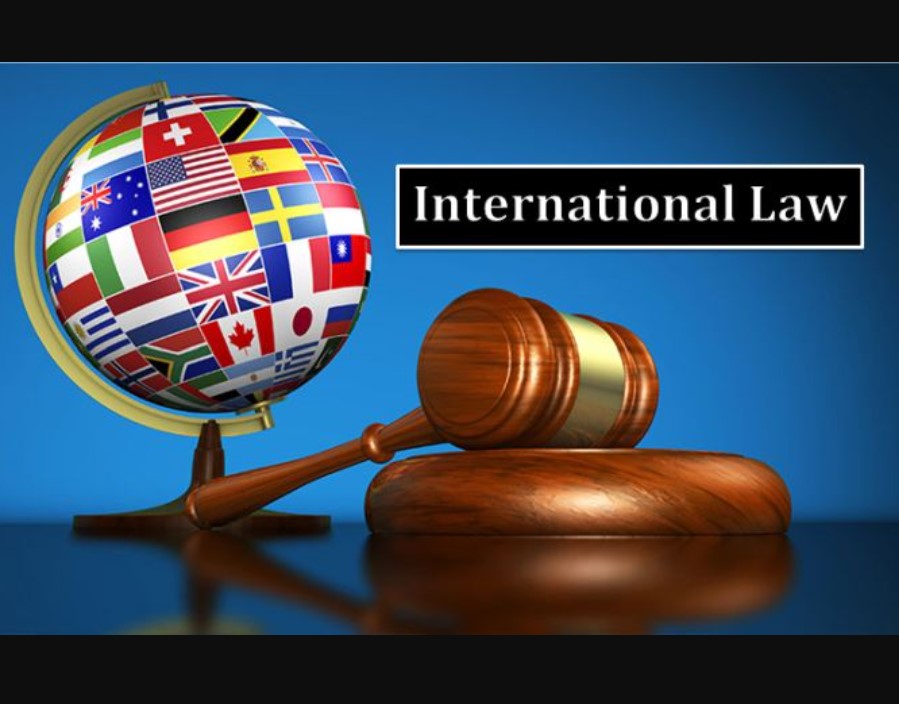
International law is a foundational pillar in the modern world, governing relationships between nations, protecting human rights, and establishing rules for global cooperation. With globalization, the significance of international law has only increased, aiming to foster peace, stability, and cooperation between states. This article delves into what international law is, its sources, types, importance, and how it’s enforced in today’s interconnected global landscape.
What is International Law?
International law refers to the body of rules and principles that govern the relationships and interactions between countries, as well as other international actors such as organizations and individuals. Unlike domestic law, which is enforced by local governments, international law operates within a system where states generally agree to comply with norms and regulations without a central authority overseeing all parties.
While compliance relies heavily on state cooperation and mutual interests, the growth of international organizations, such as the United Nations, has helped promote global standards and facilitate diplomatic solutions to transnational issues.
Sources of International Law
The foundation of international law is based on several key sources that together establish the framework for cross-border regulations. These include:
- International Treaties and Conventions: Formal agreements between two or more countries that bind the parties to specific legal obligations. Notable examples are the Geneva Conventions, which outline humanitarian treatment during war, and the Paris Agreement, which addresses climate change.
- Customary International Law: Unwritten norms and practices that are accepted as legal obligations due to consistent state practices and a sense of legal duty. Many customs, such as diplomatic immunity, have evolved over time to become legally binding.
- General Principles of Law: These are fundamental principles recognized by the global community, such as fairness, justice, and respect for sovereignty. If a dispute cannot be resolved through treaties or customs, general principles often guide the resolution process.
- Judicial Decisions and Scholarly Writings: Although not primary sources, rulings from international courts and legal publications often influence the interpretation and application of international law.
Types of International Law
International law encompasses several specialized areas, each addressing specific aspects of inter-state relations. Key types include:
- Public International Law: Governs relationships between countries and includes laws on diplomatic relations, state sovereignty, and human rights. Public international law also encompasses international criminal law, which prosecutes crimes like genocide and war crimes.
- Private International Law: Deals with conflicts of laws across borders, such as issues in international business contracts, personal matters, and inheritance. This area helps determine which country’s laws apply in multi-jurisdictional disputes and facilitates cross-border legal processes.
- Humanitarian Law: Also known as the law of armed conflict, humanitarian law establishes rules for armed conflicts, protecting non-combatants, medical personnel, and prisoners of war. The Geneva Conventions are a cornerstone of humanitarian law.
- Environmental Law: This area addresses global environmental challenges, regulating pollution, protecting biodiversity, and enforcing sustainable practices. Key agreements include the Kyoto Protocol and the Convention on Biological Diversity.
- Human Rights Law: Aims to protect the basic rights and freedoms of individuals on a global scale. Human rights treaties like the Universal Declaration of Human Rights and the International Covenant on Civil and Political Rights outline standards for treatment and protections for all individuals.
Importance of International Law
The role of international law in the modern world cannot be understated, as it serves numerous vital purposes:
- Promotes Peace and Security: By establishing guidelines for acceptable conduct and resolving disputes peacefully, international law helps prevent conflicts and fosters diplomatic solutions. The United Nations, for example, plays a critical role in mediating conflicts and imposing sanctions on countries that breach international norms.
- Protects Human Rights: International law enshrines human rights protections, ensuring that individuals receive fundamental rights regardless of where they live. This is particularly essential for protecting vulnerable populations, such as refugees and victims of armed conflict.
- Regulates Trade and Economic Relations: International trade law facilitates smooth trade operations by setting rules for cross-border transactions and investments. This helps promote economic growth and fair trade, encouraging cooperation and economic stability worldwide.
- Addresses Global Challenges: Issues like climate change, terrorism, and pandemics are inherently transnational, requiring collaborative solutions. Through international environmental laws, health regulations, and anti-terrorism treaties, international law provides a mechanism for tackling global challenges collectively.
Enforcement of International Law
One of the main criticisms of international law is the difficulty in enforcing it, given the absence of a central authority with comprehensive enforcement powers. Enforcement often relies on a mix of international institutions, diplomatic pressure, and state compliance.
- United Nations Security Council: The UN Security Council plays a vital role in maintaining international peace and security. It can authorize sanctions, peacekeeping missions, and military interventions in cases where there is a threat to peace. For example, the Council has imposed sanctions on countries that violate human rights, such as North Korea and Iran.
- International Court of Justice (ICJ): As the judicial arm of the UN, the ICJ settles disputes between states on issues such as border conflicts and treaty violations. Although ICJ rulings are binding, the court relies on states’ willingness to comply, as it lacks enforcement power.
- International Criminal Court (ICC): The ICC prosecutes individuals for war crimes, genocide, and crimes against humanity. Although limited in jurisdiction (only member states of the Rome Statute are bound to its authority), the ICC serves as a deterrent to serious international crimes.
- Trade Sanctions and Embargoes: Countries and organizations may impose economic sanctions or embargoes as a means to compel compliance with international norms. Trade restrictions, for instance, were imposed on Russia following its annexation of Crimea in 2014, applying pressure for it to comply with international rules.
Challenges and Criticisms of International Law
Despite its many benefits, international law faces significant challenges:
- Lack of Enforcement Mechanisms: With no single governing body, enforcement depends heavily on voluntary compliance and the influence of powerful states, making it challenging to address breaches consistently.
- Political Influence: Powerful nations often wield significant influence over international bodies, such as the UN Security Council, potentially impacting the fairness of decisions.
- Sovereignty Concerns: States may resist international obligations that appear to infringe on their sovereignty, limiting the scope of international law. For example, some countries refuse to recognize the ICC’s jurisdiction over their nationals.
- Differing Legal Systems and Cultural Values: The diversity of legal and cultural norms across nations makes it challenging to create universally accepted laws. Differences in the interpretation of human rights, for instance, lead to debates on which standards should be applied universally.
The Future of International Law
As the world becomes more interconnected, the importance of international law in addressing global issues will likely grow. Advances in technology, such as cyber warfare and artificial intelligence, present new challenges that international law must adapt to regulate effectively. Additionally, emerging issues such as climate change and digital privacy require collaborative legal frameworks to protect global interests.
In response to these challenges, international bodies are increasingly seeking ways to make international law more robust and adaptable. Calls for reform in the UN Security Council, the expansion of international court jurisdictions, and the development of new treaties all point toward a dynamic future for international law.
Conclusion
International law is an essential framework for guiding global relations, protecting human rights, and addressing transnational challenges. Although it faces obstacles in enforcement and uniformity, its influence remains profound, offering a platform for cooperation and diplomacy. As the world continues to face complex global issues, international law will play an increasingly vital role in fostering peace, stability, and shared progress across borders.






